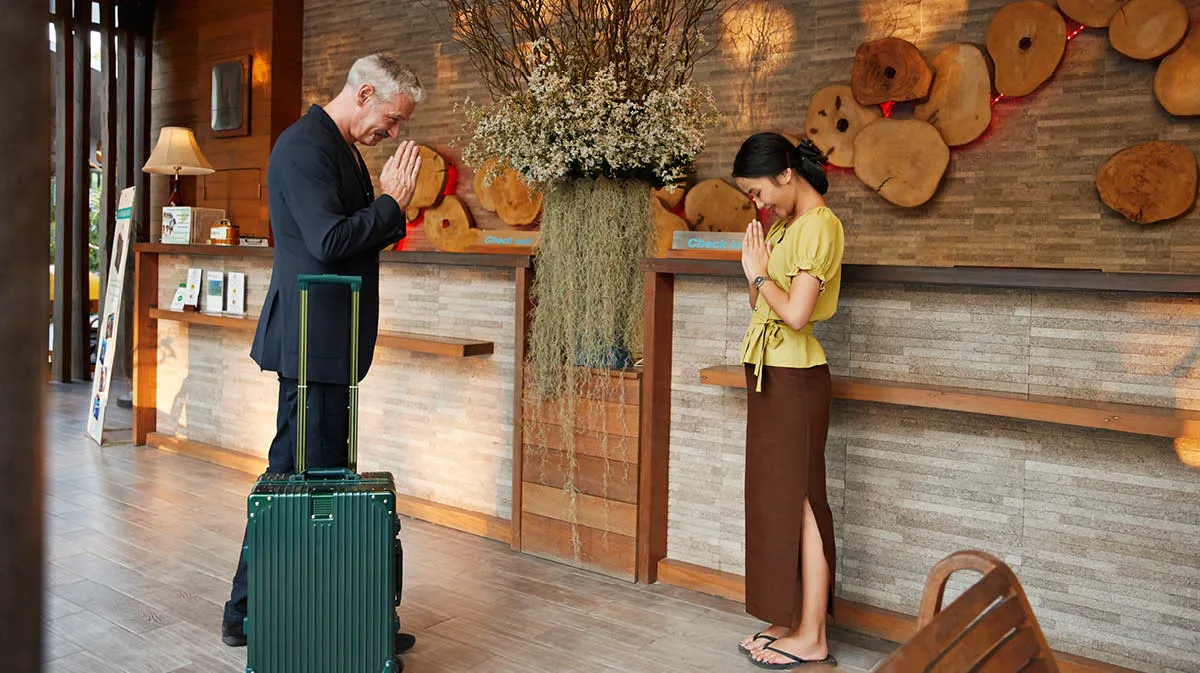- For Providers
- For Brokers
Individuals & Families
- Global Individual Health
- Spanish Domestic Individuals
Employers
- SME Employer Health
- Large Corporation Health
- Spanish Domestic Employers
IGO/NGO
- IGO/NGO Health
Individuals & Families
Top Destinations We Cover
Expat Health Insurance
- Inside Expat Health Hub
- Retiree guide to International health Insurance
- A guide to International health Insurance for working abroad
- Expat Health Insurance Explained
- Student guide to International health Insurance
- Moving abroad while pregnant
Choosing Health Insurance
- Travel Insurance vs International Health Insurance
- Choosing Health Insurance
Country Guides
- Country Guides
FAQ
- Frequently Asked Questions
Employers
Global Health Benefits Europe
- Employers Health Plans
- Cigna Inspire Plan
2 - 149 Employees
- International Health Plans
Large Corporates
- Corporate Health Plans
Global Health Benefits North America
- Employers
- OCONUS
- Students and Faculty
- Government
Clinical
Member resources
- Useful Documents & Information
- U.S Prescription Drug List
Client
- Employer Log In
IGO/NGO & Government
Government Officials
- Government Officials
Client
- Employer Log In
Topics
Individuals & Families
-
Types of Cover
-
Where We Cover
-
Resources
- Inside Expat Health Hub
- Retiree guide to International health Insurance
- A guide to International health Insurance for working abroad
- Expat Health Insurance Explained
- Student guide to International health Insurance
- Moving abroad while pregnant
- Travel Insurance vs International Health Insurance
- Choosing Health Insurance
- Country Guides
- Frequently Asked Questions
-
For Members
Employers
-
Our Plans
-
Clinical
-
For Members
IGO/NGO & Government
Health Blog
For Brokers
The business of etiquette
The business of etiquette
Avoiding a cultural faux pas when working overseas is a worry for many expats or those travelling for work. Here, we look into business etiquette around the world.
Walk into a business meeting in India with a ready handshake in one hand and a leather briefcase in the other, and you’ve already got off on the wrong foot. Shaking hands in India is commonplace, but cows are Hinduism’s sacred animal: using leather products is ill-advised.
It’s one of many examples of how subtle and complex international business etiquette can be. Cultures across the world have multitudinous and sometimes clashing expectations, so it’s vital to read up if you want to make a good impression. “A commonly made faux pas globally is assuming that, because people speak the same language, they also abide by the same cross-cultural customs that we do,” explains Ann Marie Sabath, an independent consultant and author of International Business Etiquette guides to Latin America, Europe, Asia & The Pacific Rim. “Most of the time, international courtesy is learned as a result of the sins of reprimand.”
Speak [a bit of] the language
The most overt of these cultural differences is language. International business may rely on translators, but making an effort to learn even a few words before meeting a client goes a long way. Research by the Journal of Rhetoric, Professional Communication, and Globalisation found that just attempting to speak a business associate’s language showed benevolence and helped establish trust.
Countries like France are particularly proud of their language; disregarding it is seen as disappointing at best. Something as simple as using the correct honourifics can have a big impact. This is especially true in hierarchical business cultures like Japan, where honourifics change based on interpersonal status.
If you are attempting to speak a foreign language, only use words you’re certain of. “Never assume that cognates mean what you think they do in your culture”, warns Ann Marie. The author explains it’s a hard-learned lesson: she once apologised for a Spanish faux pas with ‘estoy muy embarazada’ — not ‘I’m very embarrassed’ but ‘I’m very pregnant’.
Cultural idioms can also surprise you. In Thailand, a common greeting is ‘have you eaten’ instead of ‘how are you’, while in China, people will commonly ask ‘how much do you earn’ — best answered with a compliment to your company. Countries like India and Japan avoid using the word ‘no’ entirely and tend to equivocate with a politer ‘maybe’ or ‘perhaps’. Meanwhile, in Middle Eastern cultures, it’s worth being cautious of compliments; praising someone’s jacket or the office artwork may make them feel compelled to give it to you.

Timed to perfection
The phrase ‘time is money’ is well known for good reason. For a large number of countries, particularly across Asia, Europe, North America and Oceania, punctuality is equivalent to respect. Turning up on time (better yet, early) is key to making a good first impression in places like Australia, the UK, Germany and Norway. In other countries though, the focus shifts from punctuality to the person.
“In general, countries where people stand closer to each other tend to respect the person with whom they’re interacting over the clock,” explains Ann Marie. “There’s a saying in Spanish: ‘Time is like space’, and that means if I’m talking with you and I have a 12:15 meeting, I’m not going to worry about the meeting. What we’re talking about is much more important than the clock.”
In Brazil, for example, it’s incredibly common for meetings to overrun, but it would be rude to leave early. It’s an entirely opposite approach, one that’s hard for many to grapple with. How does someone from Berlin ever do business with someone in Brasilia without coming to untimely blows?
“Here’s the one and only rule: the client is always right,” states Ann Marie. “If you’re the client and you keep me waiting for two hours, I better get over it.” Freer time management isn’t necessarily inconsiderate — it’s simply a cultural difference.
Table manners
The majority of countries are keen to do business over food. After all, breaking bread has always been a fast track to growing a relationship. Throw in gourmet cuisine, a late-night atmosphere and alcohol where appropriate, and it’s also one of the best parts of doing business. But a laid-back environment can lure you into a false sense of security, and opens up a whole new set of etiquette hurdles.
To start, there’s seating arrangements. In Japan, the seat of honour isn’t at the head of the table as most western cultures presume, but the furthest from the door — an affectation from shogun days, where juniors were seated closer to the entrance to protect the senior.
In both Japan and China, mastering chopsticks is important but it’s equally vital to know how to place them. Sticking your chopsticks upright in a bowl of rice is incredibly discomforting, as it echoes incense sticks at funerals. To their west in India, eating with your left hand is considered unclean.
How much one eats matters too: in Denmark, it’s considered wasteful to not finish your food, while in China, polishing off your plate can signal you weren’t given enough. As Ann Marie explains, etiquette often comes down to the little details: even the smallest cultural faux pas can fracture relationships. “I knew an Italian gentleman who was ready to hire a man as his Senior Vice President,” she says. “He took him to his favourite proper Italian restaurant where the mama was in the kitchen cooking. The Italian man recommended this meal, his guest accepted… but when they went to eat, the Anglo SVP cut his pasta. Cut his linguine. And he was not offered the job. It was such a faux pas for this Italian man.”

To give or not to give?
In many countries, gifts are an expected part of doing business, but it’s important to know what you’re doing. Presents should be thought out and considered in advance, with aspects such as where the gift originates, whether alcohol is appropriate, and even colour and number taken into account.
In Taiwan, odd numbers are considered unlucky, so gifts that come in pairs are far more appreciated. Naturally, dry countries like those in the Middle East won’t take kindly to alcoholic gifts, while some countries put a lot of value on your alcoholic choice — don’t gift wine in France unless you know what you’re doing.
While many businesses like to brand gifts with corporate logos, countries like France consider it somewhat tasteless. Their neighbour Italy can be quite extravagant with gifts, but countries such as Brazil could see expensive presents as an attempt to bribe. Gift-giving in Germany is often inappropriate, with some companies enforcing strict anti-corruption rules that make accepting them impossible.
If you’re stuck for appropriate gift ideas, you can always ask the hotel concierge for suggestions. Just make sure to wrap the present and always hand gifts and business cards over with two hands — inoffensive across the globe.
Focus on what matters
Ultimately, with such a mix, navigating etiquette from Asia to the Americas may seem impossible, but a small amount of studying will stand you in good stead. Some rules hold true across the world too, reassures Ann Marie. Recognise your own limitations — you won’t know everything — adapt to the culture, and consider the client’s perspective. “It’s all about the relationship,” she summarises simply. “Put the people first.”
If you need expat health insurance alongside your travel insurance, we have options to suit your needs and budget. Click here to learn more, or get a quote in under 2 minutes here.
Sources
1 - Aïdoud, A. et al. (2023). ‘High Prevalence of Geriatric Conditions Among Older Adults With Cardiovascular Disease’. Journal of the American Heart Association, Vol. 12(2).
Related articles
©Cigna 2025
This article has been prepared for general information only and is not intended to provide or constitute advice. Although reasonable steps have been taken to verify the accuracy of the information contained in this article as at the date of production, the position may change at any time. As a consequence, we cannot guarantee that the information contained in this article is accurate or up to date and it should not be solely relied upon. To ensure you have the most accurate and up to date information available, we recommend that you consult government agencies or seek independent legal, financial or medical advice regarding residency, insurance or healthcare rights and requirements in relation to the relevant country or territory.
Contact Us
Whether you wish to speak to our sales team or get general help if you are already a Cigna Healthcare® member, we’ll get you to the right information.
Contact InformationPopular Links
Resources
© Cigna Healthcare. All rights reserved.
*Please note, this is a representation of the benefits available and does not contain the terms, conditions, and exclusions specific to each benefit. The benefits may be subject to change. Some benefits may be part of an optional module. Please see the Customer Guide for full details.
This website is provided by Cigna European Services (UK) Limited, a company incorporated in England and Wales having its registered address at 13th Floor, 5 Aldermanbury Square, London EC2V 7HR and registered number 00199739. The Cigna Healthcare name, logo and other Cigna Healthcare marks are owned by Cigna Intellectual Property, Inc., licensed for use by The Cigna Group and its operating subsidiaries.
Our Policies are underwritten by Cigna Global Insurance Company Limited, a private limited company under Guernsey Law, with registered address office at PO Box 155, Mill Court, La Charroterie, St Peter Port, Guernsey, GY1 4ET, and company number 41925. Cigna Global Insurance Company Limited is authorised and regulated by the Guernsey Financial Services Commission for the conduct of insurance business in Guernsey.
This communication is being issued and/or distributed by Cigna Insurance Management Services (DIFC) Limited which is regulated by the Dubai Financial Services Authority.
Selecting these links will take you away from Cignaglobal.com. Cigna Healthcare does not control the linked sites' content or links.

